Science Quotes
Most popular science quotes

A hypothesis may be simply defined as a guess. A scientific hypothesis is an intelligent guess.

That is very little flexibility in the behavior of the universe. What it does once, it does again.

Any increase in knowledge anywhere helps pave the way for an increase in knowledge everywhere.
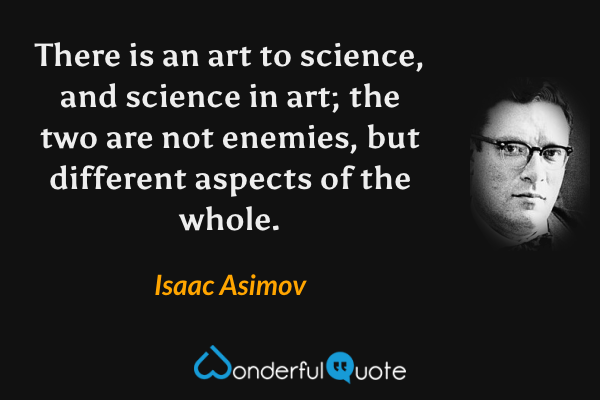
There is an art to science, and science in art; the two are not enemies, but different aspects of the whole.
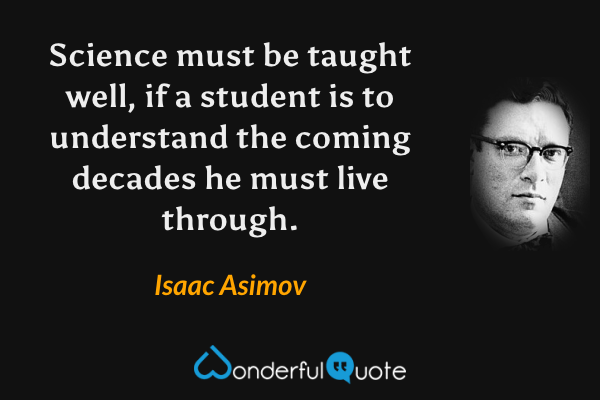
Science must be taught well, if a student is to understand the coming decades he must live through.

Anyone who writes about science must know about science, which cuts down competition considerably.

The nations may be divided in everything else, but they all share a single body of science.
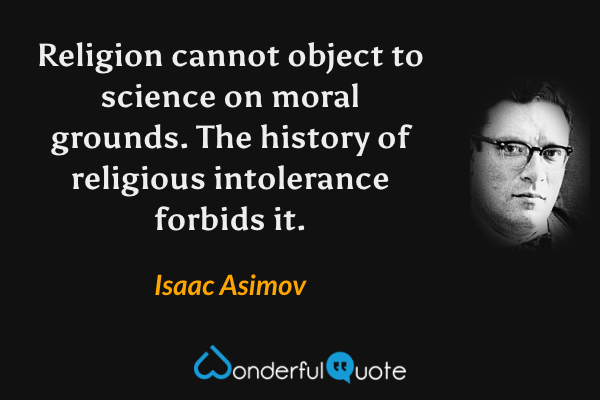
Religion cannot object to science on moral grounds. The history of religious intolerance forbids it.

The saddest aspect of life right now is that science gathers knowledge faster than society gathers wisdom.

Every hour a scientist spends trying to raise funds is an hour lost from important thought and research.

It is hard to describe the exact route to scientific achievement, but a good scientist doesn't get lost as he travels it.

A scientist is as weak and human as any man, but the pursuit of science may ennoble him even against his will.

The card player begins by arranging his hand for maximum sense. Scientists do the same with the facts they gather.

Facts are a heap of bricks and timber. It is only a successful theory that can convert the heap into a stately mansion.

I do not know what I may appear to the world, but to myself I seem to have been only like a boy playing on the sea-shore, and diverting myself in now and then finding a smoother pebble or a prettier shell than ordinary, whilst the great ocean of truth lay all undiscovered before me.

The true worth of an experimenter consists in his pursuing not only what he seeks in his experiment, but also what he did not seek.

The mere formulation of a problem is far more often essential than its solution, which may be merely a matter of mathematical or experimental skill. To raise new questions, new possibilities, to regard old problems from a new angle requires creative imagination and marks real advances in science.

We shall never get people whose time is money to take much interest in atoms.
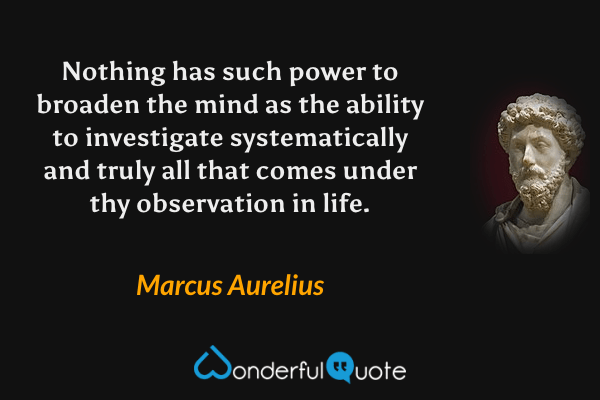
Nothing has such power to broaden the mind as the ability to investigate systematically and truly all that comes under thy observation in life.

The investigator should have a robust faith—and yet not believe.

Science is the father of knowledge, but opinion breeds ignorance.
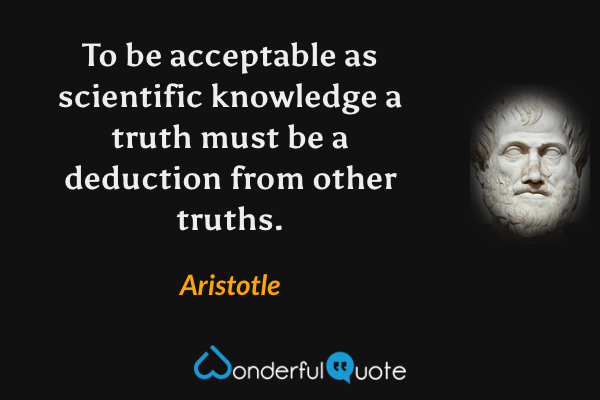
To be acceptable as scientific knowledge a truth must be a deduction from other truths.

Science without conscience is the death of the soul.

Men love to wonder, and that is the seed of our science.

Every great scientific truth goes through three states: first, people say it conflicts with the Bible; next, they say it has been discovered before; lastly, they say they always believed it.

The work of science is to substitute facts for appearance, and demonstrations for impressions.

Man has mounted science; and is now run away.

Science is always wrong. It never solves a problem without creating ten more.

True science teaches, above all, to doubt and to be ignorant.
A science is any discipline in which the fool of this generation can go beyond the point reached by the genius of the last generation.
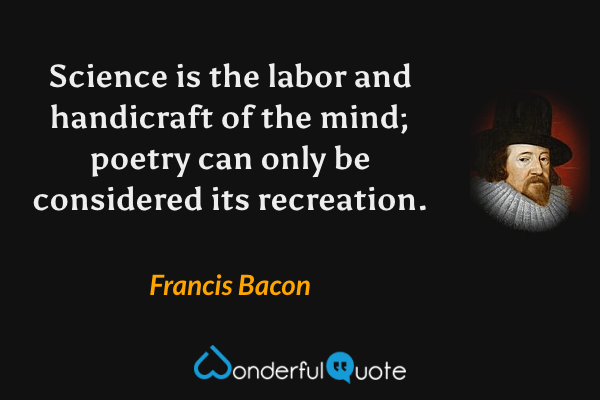
Science is the labor and handicraft of the mind; poetry can only be considered its recreation.
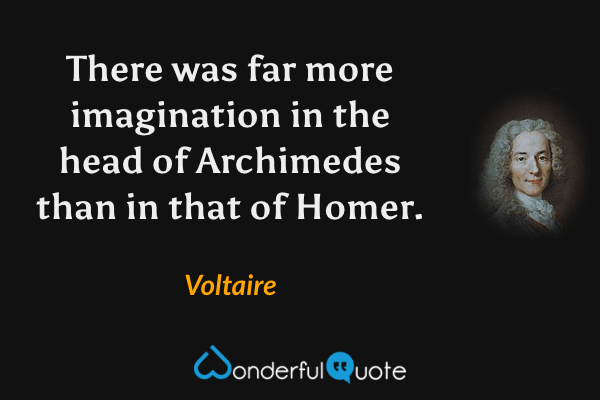
There was far more imagination in the head of Archimedes than in that of Homer.
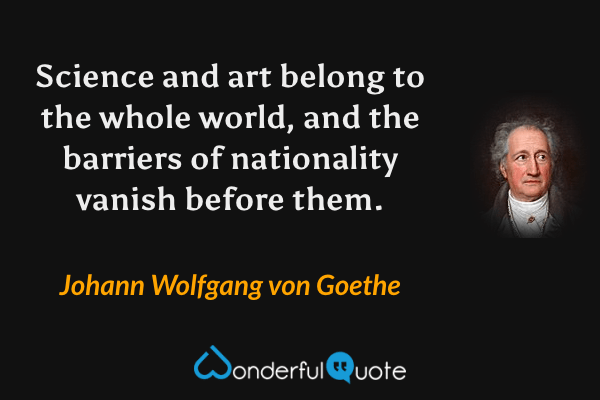
Science and art belong to the whole world, and the barriers of nationality vanish before them.
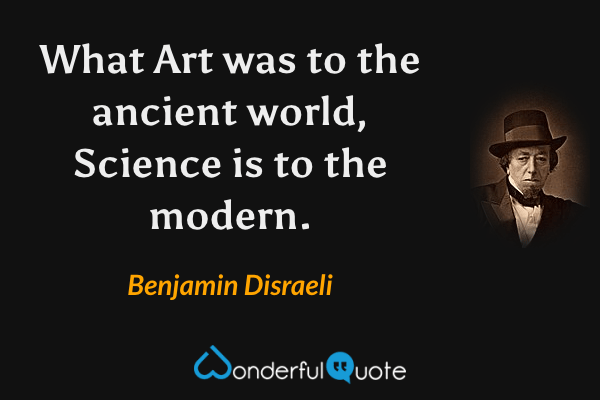
What Art was to the ancient world, Science is to the modern.
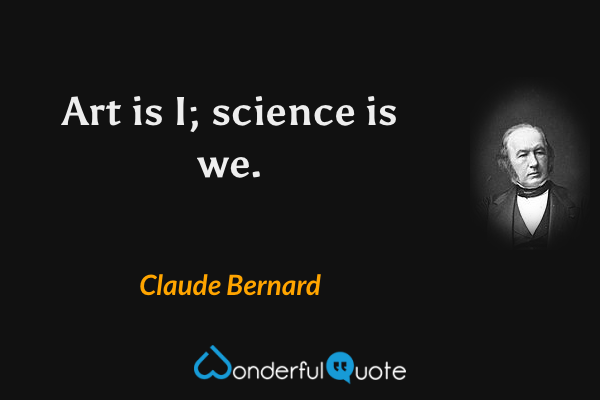
Art is I; science is we.

Science has been seriously retarded by the study of what is not worth knowing, and of what is not knowable.
Every student who enters upon a scientific pursuit, especially if at a somewhat advanced period of life, will find not only that he has much to learn, but much also to unlearn.

Science is the topography of ignorance.

In science, as in life, learning and knowledge are distinct, and the study of things, and not of books, is the source of the latter.

In science the credit goes to the man who convinces the world, not to the man to whom the idea first occurs.
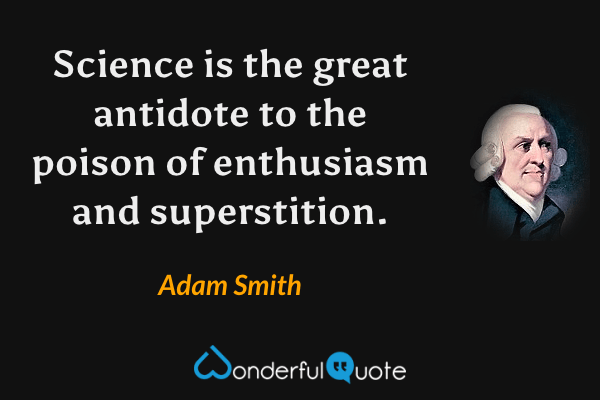
Science is the great antidote to the poison of enthusiasm and superstition.
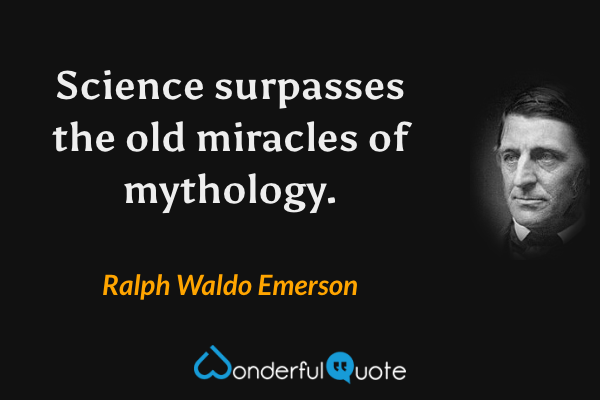
Science surpasses the old miracles of mythology.
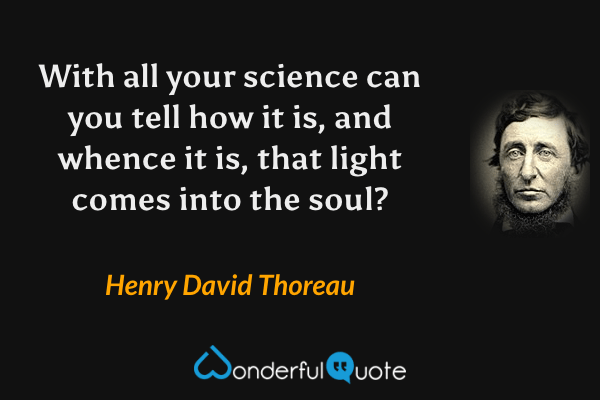
With all your science can you tell how it is, and whence it is, that light comes into the soul?
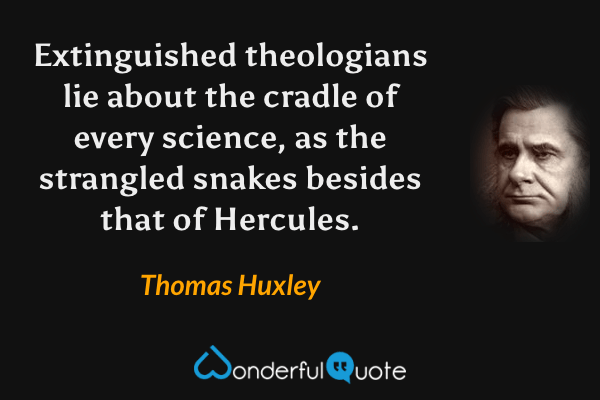
Extinguished theologians lie about the cradle of every science, as the strangled snakes besides that of Hercules.

The birth of science was the death of superstition.

Science commits suicide when it adopts a creed.

Nothing has tended more to retard the advancement of science than the disposition in vulgar minds to vilify what they cannot comprehend.

The main object of all science is the freedom and happiness of man.

Some day science may have the existence of man in its power, and the human race may commit suicide by blowing up the world.
![Two years ago I tried to appeal to Rockefeller's conscience about the absurd method of allocating grants, unfortunately without success. [Neils] Bohr has now gone to see him, in an attempt to persuade him to take some action on behalf of the exiled German scientists. - Albert Einstein quote.](/img/q/66/366A-two-years-ago-i-tried-to-appeal-rockefellers-conscience-about-einstein.png)
Two years ago I tried to appeal to Rockefeller's conscience about the absurd method of allocating grants, unfortunately without success. [Neils] Bohr has now gone to see him, in an attempt to persuade him to take some action on behalf of the exiled German scientists.
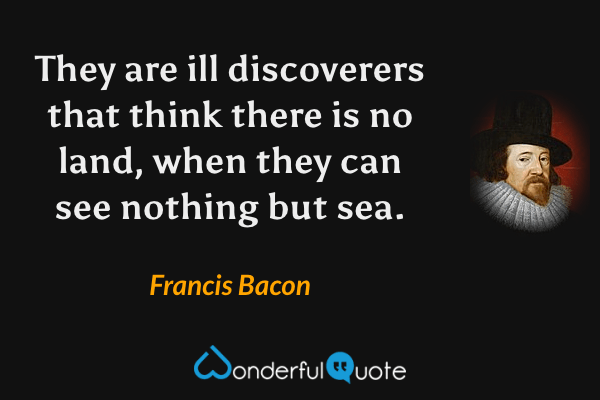
They are ill discoverers that think there is no land, when they can see nothing but sea.

A patient pursuit of facts, and cautious combination and comparison of them, is the drudgery to which man is subjected by his Maker, if he wishes to attain sure knowledge.

Darwin was as much of an emancipator as was Lincoln.

How many wells of science there are in whose depths there is nothing but clear water!

I've seen things that violated the laws of physics. I believe the laws of physics can be violated. I believe there may well be extraterrestrials somewhere in the universe.

Now, my own suspicion is that the universe is not only queerer than we suppose, but queerer than we can suppose.

If you were to meet a termite, to state that his or her goal in life was the perfect modeling of the cosmos, you would think it was quite a comic undertaking. And yet how different are we that we should presume to more than a shadow of the truth.

Creating a new theory is not like destroying an old barn and erecting a skyscraper in its place. It is rather like climbing a mountain, gaining new and wider views, discovering unexpected connections between our starting point and its rich environment.

In science, read, by preference, the newest works; in literature, the oldest. The classic literature is always modern.

Experience, the universal Mother of Sciences.
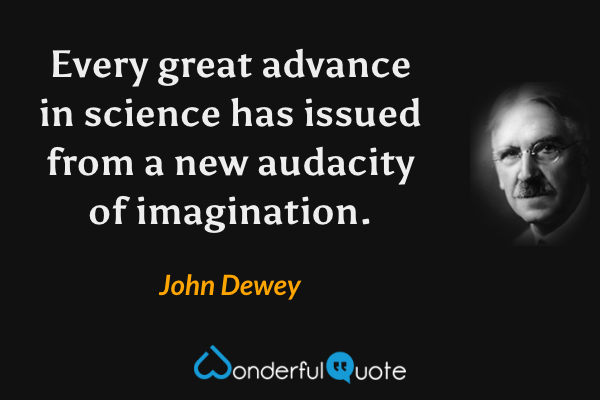
Every great advance in science has issued from a new audacity of imagination.

Science is a mechanism, a way of trying to improve your knowledge of nature. It's a system for testing your thoughts against the universe, and seeing whether they match.

Science is built up of facts, as a house is built of stones; but an accumulation of facts is no more a science than a heap of stones is a house.

Science does not know its debt to imagination.
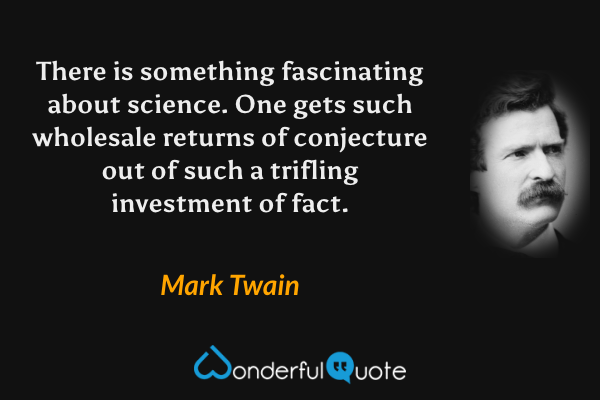
There is something fascinating about science. One gets such wholesale returns of conjecture out of such a trifling investment of fact.

The most incomprehensible thing about the world is that it is comprehensible.

Mysteries are not necessarily miracles.

An age is called Dark, not because the light fails to shine, but because people refuse to see it.
The universe is full of magical things patiently waiting for our wits to grow sharper.
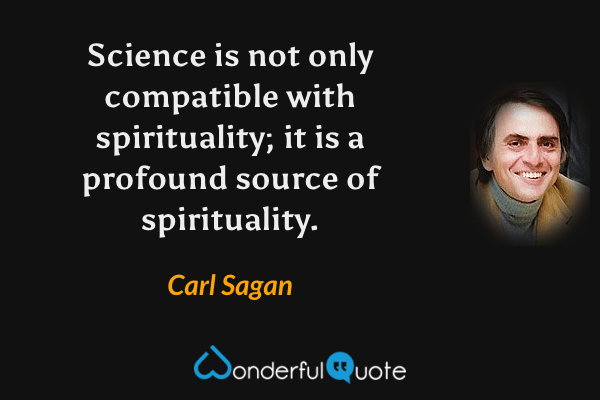
Science is not only compatible with spirituality; it is a profound source of spirituality.
Science at best is not wisdom; it is knowledge. Wisdom is knowledge tempered with judgment.

It is not the business of science to inherit the earth, but to inherit the moral imagination; because without that, man and beliefs and science will perish together.

Science has made us gods even before we are worthy of being men.
It is only by introducing the young to great literature, drama and music, and to the excitement of great science that we open to them the possibilities that lie within the human spirit — enable them to see visions and dream dreams.
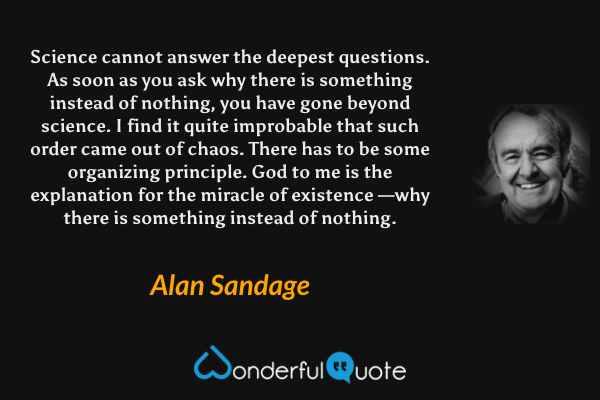
Science cannot answer the deepest questions. As soon as you ask why there is something instead of nothing, you have gone beyond science. I find it quite improbable that such order came out of chaos. There has to be some organizing principle. God to me is the explanation for the miracle of existence —why there is something instead of nothing.
A physicist is an atom's way of knowing about atoms.
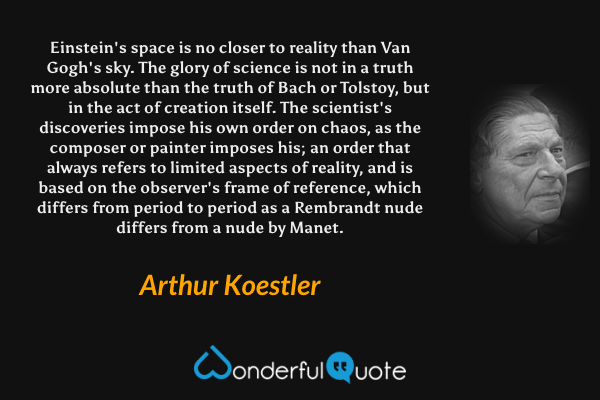
Einstein's space is no closer to reality than Van Gogh's sky. The glory of science is not in a truth more absolute than the truth of Bach or Tolstoy, but in the act of creation itself. The scientist's discoveries impose his own order on chaos, as the composer or painter imposes his; an order that always refers to limited aspects of reality, and is based on the observer's frame of reference, which differs from period to period as a Rembrandt nude differs from a nude by Manet.

I think that only daring speculation can lead us further and not accumulation of facts.
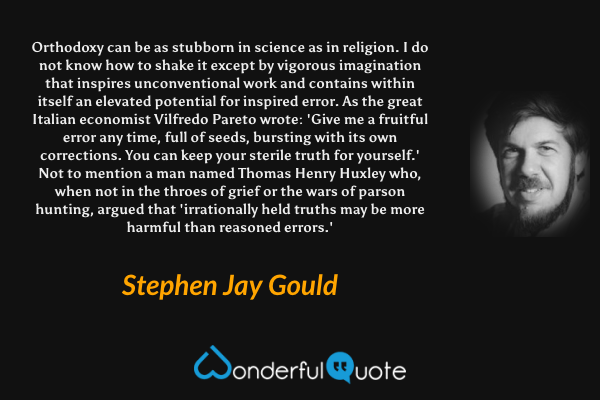
Orthodoxy can be as stubborn in science as in religion. I do not know how to shake it except by vigorous imagination that inspires unconventional work and contains within itself an elevated potential for inspired error. As the great Italian economist Vilfredo Pareto wrote: 'Give me a fruitful error any time, full of seeds, bursting with its own corrections. You can keep your sterile truth for yourself.' Not to mention a man named Thomas Henry Huxley who, when not in the throes of grief or the wars of parson hunting, argued that 'irrationally held truths may be more harmful than reasoned errors.'

Everything that enlarges the sphere of human powers, that shows man he can do what he thought he could not do, is valuable.

Man is an animal with primary instincts of survival. Consequently his ingenuity has developed first and his soul afterwards. The progress of science is far ahead of man's ethical behavior.

Nine tenths of modern science is in this respect the same: it is the produce of men whom their contemporaries thought dreamers - who were laughed at for caring for what did not concern them - who, as the proverb went, 'walked into a well from looking at the stars' - who were believed to be useless, if anyone could be such.
The feeling of aha, that's it, which accompanies the clothing of a situation with meaning, is emotionally very satisfying, and is the major charm of scientific research, or artistic creation, and of the solution of crossword puzzles. It is why the intellectual life is fun.

In the fields of observation chance favors only the prepared mind.
To err is human, to try to prevent recurrence of error is science.
Man is slightly nearer to the atom than the stars. From his central position he can survey the grandest works of Nature with the astronomer, or the minutest works with the physicist.
Look at those animals and remember the greatest scientists in the world have never discovered how to make grass into milk.
Science cannot stop while ethics catches up ... and nobody should expect scientists to do all the thinking for the country.
Death is just a low chemical trick played on everybody except sequoia trees.
The scientific theory I like best is that the rings of Saturn are composed entirely of lost airline luggage.

Is ditchwater dull? Naturalists with microscopes have told me that it teems with quiet fun.
The investigator should have a robust faith - and yet not believe.
Science will never be able to reduce the value of a sunset to arithmetic. Nor can it reduce friendship or statesmanship to a formula.
A good scientist is a person in whom the childhood quality of perennial curiosity lingers on. Once he gets an answer, he has other questions.

The great tragedy of Science — the slaying of a beautiful hypothesis by an ugly fact.

Scientists are peeping toms at the keyhole of eternity.
Science has not yet mastered prophecy. We predict too much for the next year and yet far too little for the next 10.
I cannot imagine any condition which would cause a ship to founder. I cannot conceive of any vital disaster happening to this vessel. Modern shipbuilding has gone beyond that.
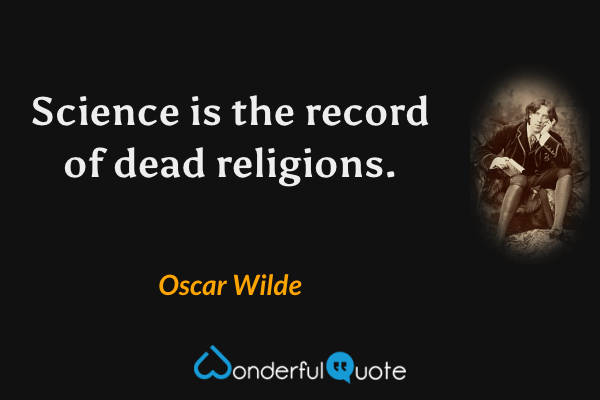
Science is the record of dead religions.

Men love to wonder, and that is the seed of science.

Science can not only make man richer—but science can make man better.
The simplest schoolboy is now familiar with truths for which Archimedes would have given his life.

Science is organized knowledge.
We must, however, acknowledge as it seems to me, that a man with all his noble qualities...still bears in his bodily frame the indelible stamp of his lowly origin.

Equipped with his five senses, man explores the universe around him and calls the adventure Science.
The plural of anecdote is not data.

The most important scientific revolutions all include, as their only common feature, the dethronement of human arrogance from one pedestal after another of previous convictions about our centrality in the cosmos.
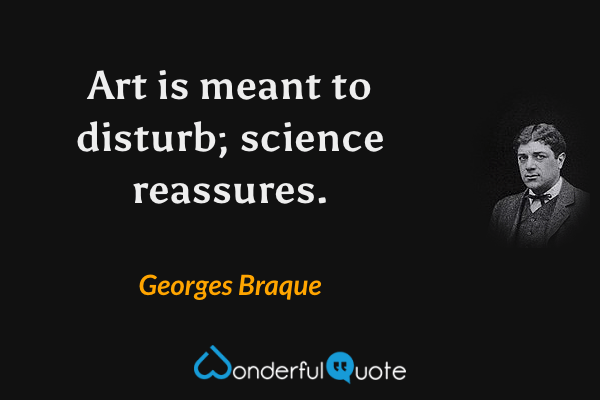
Art is meant to disturb; science reassures.
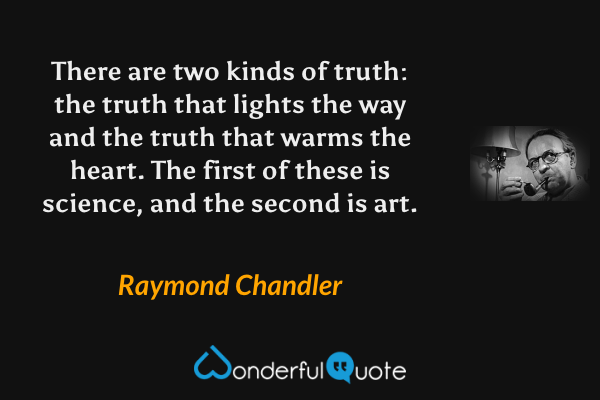
There are two kinds of truth: the truth that lights the way and the truth that warms the heart. The first of these is science, and the second is art.
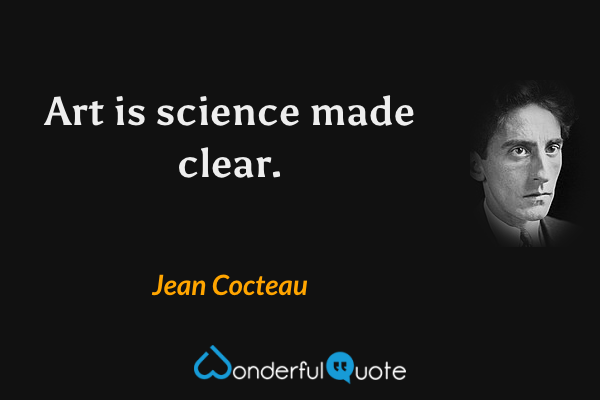
Art is science made clear.
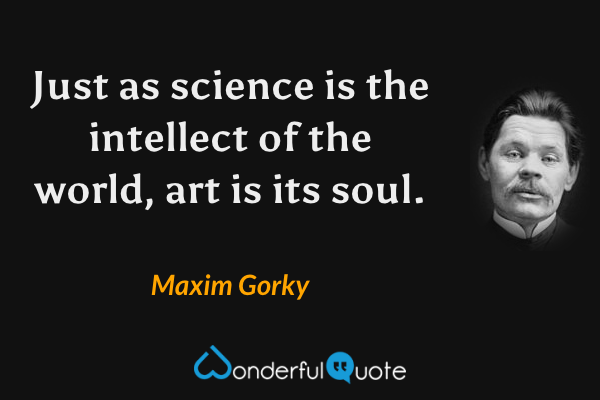
Just as science is the intellect of the world, art is its soul.

That is the essence of science: ask an impertinent question, and you are on the way to a pertinent answer.
Science is a voyage of discovery, and beyond each horizon there is another.

Great scientific discoveries have been made by men seeking to verify quite erroneous theories about the nature of things.

I have called this principle, by which each slight variation, if useful, is preserved, by the term of Natural Selection.
The great tragedy of Science—the slaying of a beautiful hypothesis by an ugly fact.

In science, all facts, no matter how trivial or banal, enjoy democratic equality.
I'm absolutely convinced that the pleasure of a real scientific insight—it doesn't have to be a great discovery—is like an orgasm.
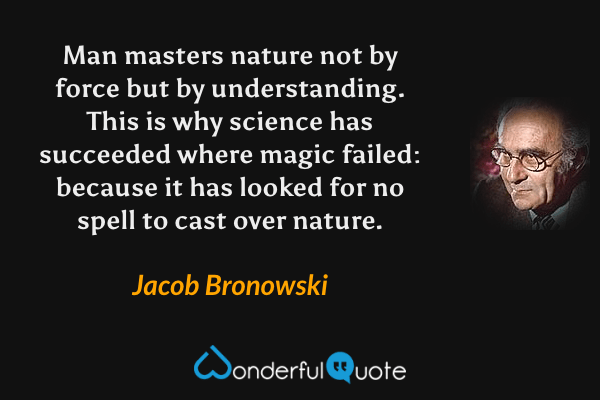
Man masters nature not by force but by understanding. This is why science has succeeded where magic failed: because it has looked for no spell to cast over nature.
The scientific mind does not so much provide the right answers as ask the right questions.
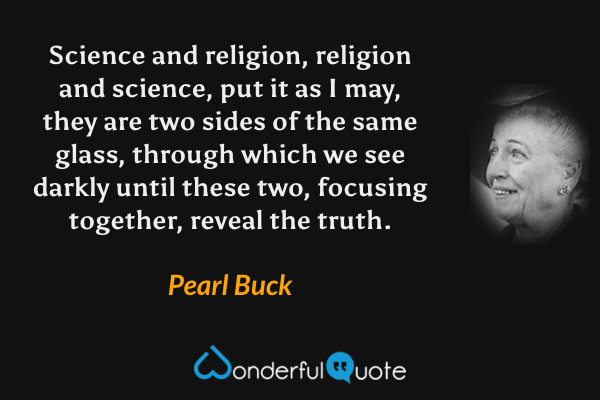
Science and religion, religion and science, put it as I may, they are two sides of the same glass, through which we see darkly until these two, focusing together, reveal the truth.
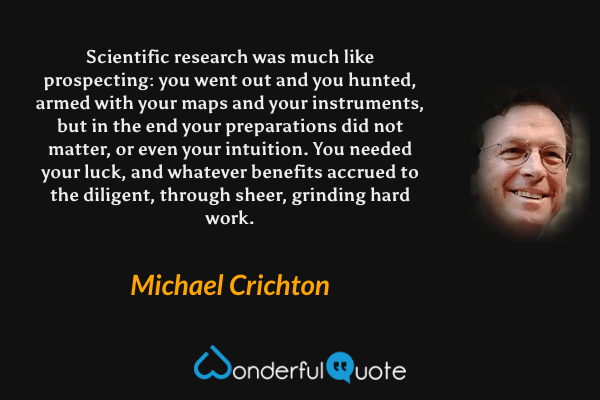
Scientific research was much like prospecting: you went out and you hunted, armed with your maps and your instruments, but in the end your preparations did not matter, or even your intuition. You needed your luck, and whatever benefits accrued to the diligent, through sheer, grinding hard work.
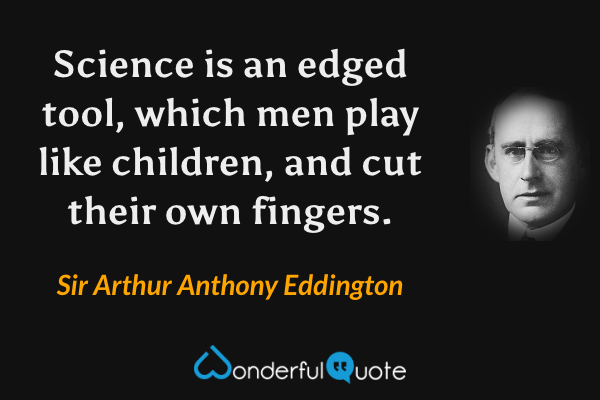
Science is an edged tool, which men play like children, and cut their own fingers.

All of science is nothing more than the refinement of everyday thinking.

Science is the belief in the ignorance of experts.

Science is the only way we have of shoving truth down the reluctant throat.
Reason, Observation, and Experience—the Holy Trinity of Science.

Every science has been an outcast.

Science knows no country, because knowledge belongs to humanity, and is the torch which illuminates the world.

Science has made us gods before we are even worthy of being men.
All science is either physics or stamp collecting.

Modern science has been a voyage into the unknown, with a lesson in humility waiting at every stop. Many passengers would rather have stayed home.

Science as a Candle in the Dark.

Today's science is tomorrow's technology.

Science is bound, by the everlasting vow of honor, to face fearlessly every problem which can be fairly presented to it.

Science does not have a moral dimension. It is like a knife. If you give it to a surgeon or a murderer, each will use it differently. Should the knife have not been developed?

Our science is like a store filled with the most subtle intellectual devices for solving the most complex problems, and yet we are almost incapable of applying the elementary principles of rational thought.

Much of good science—and perhaps all of great science—has its roots in fantasy.
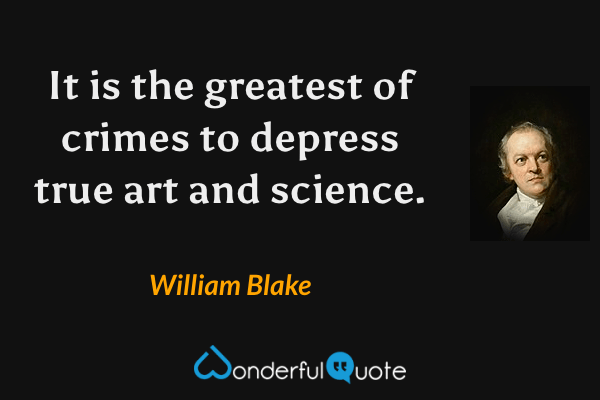
It is the greatest of crimes to depress true art and science.
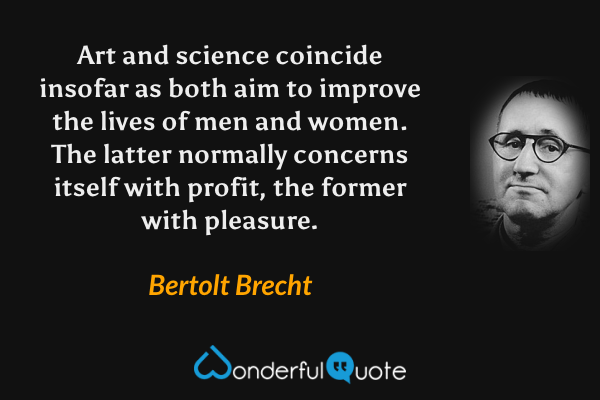
Art and science coincide insofar as both aim to improve the lives of men and women. The latter normally concerns itself with profit, the former with pleasure.
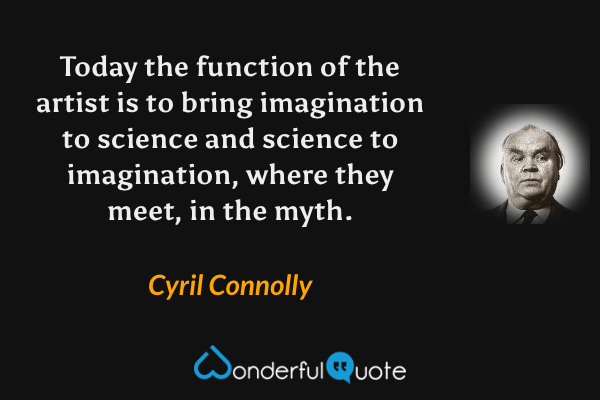
Today the function of the artist is to bring imagination to science and science to imagination, where they meet, in the myth.
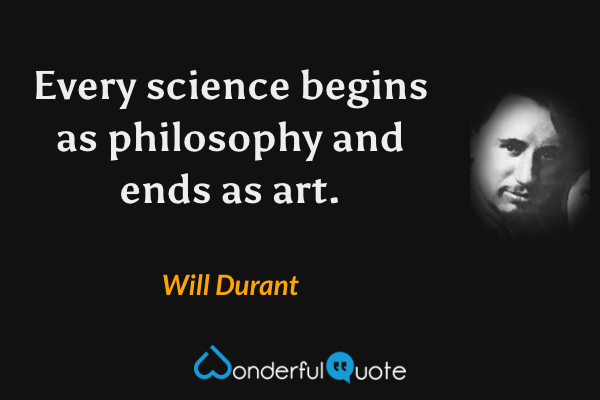
Every science begins as philosophy and ends as art.
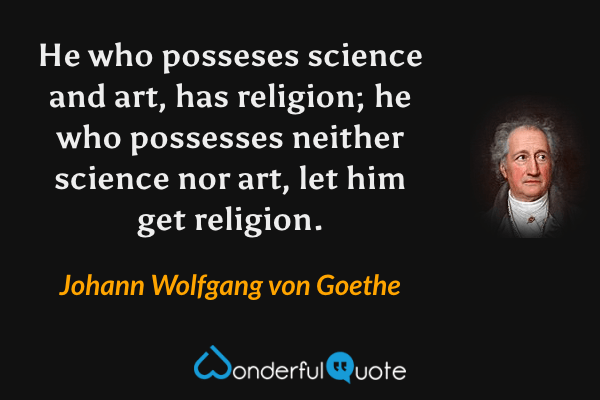
He who posseses science and art, has religion; he who possesses neither science nor art, let him get religion.
The truths of Science become more meaningful and more beautiful when analyzed and explained; exactly the reverse occurs with the truths of Art.
Science and art, or by the same token, poetry and prose differ from one another like a journey and an excursion. The purpose of the journey is its goal, the purpose of an excursion is the process.
A science or an art may be said to be "useful" if its development increases, even indirectly, the material well-being and comfort of men, it promotes happiness, using that word in a crude and commonplace way.
Science and art are only too often a superior kind of dope, possessing this advantage over booze and morphia: that they can be indulged in with a good conscience and with the conviction that, in the process of indulging, one is leading the "higher life."
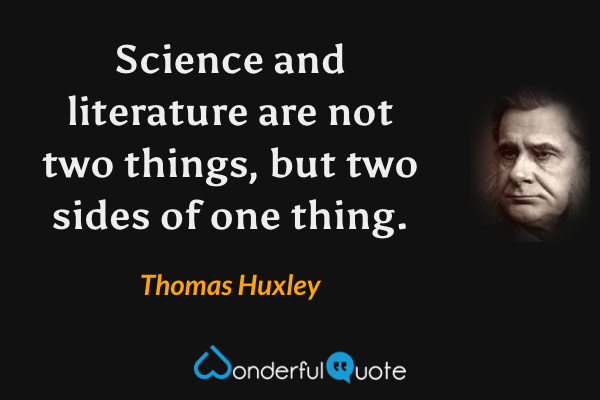
Science and literature are not two things, but two sides of one thing.
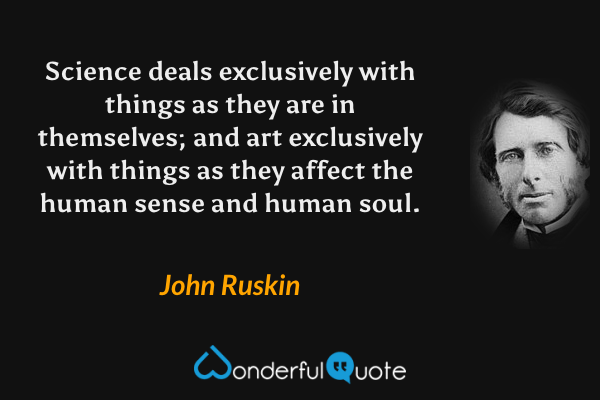
Science deals exclusively with things as they are in themselves; and art exclusively with things as they affect the human sense and human soul.
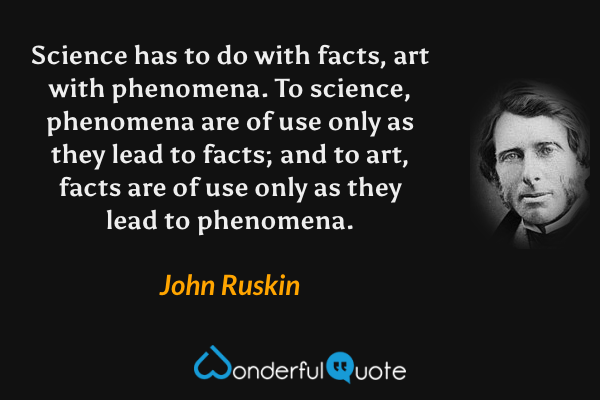
Science has to do with facts, art with phenomena. To science, phenomena are of use only as they lead to facts; and to art, facts are of use only as they lead to phenomena.
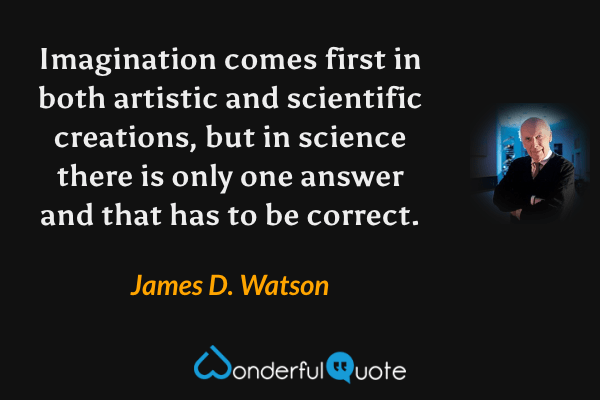
Imagination comes first in both artistic and scientific creations, but in science there is only one answer and that has to be correct.
Art was the mother of Science.
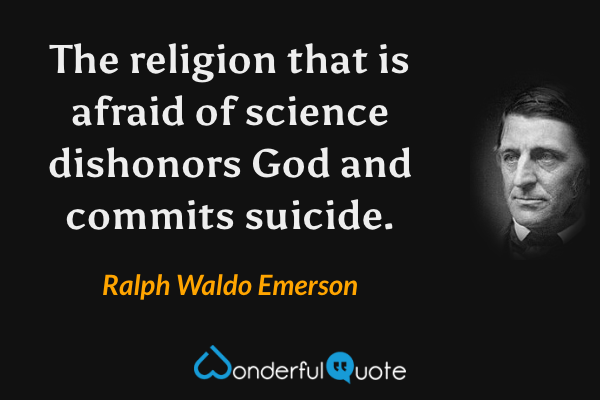
The religion that is afraid of science dishonors God and commits suicide.
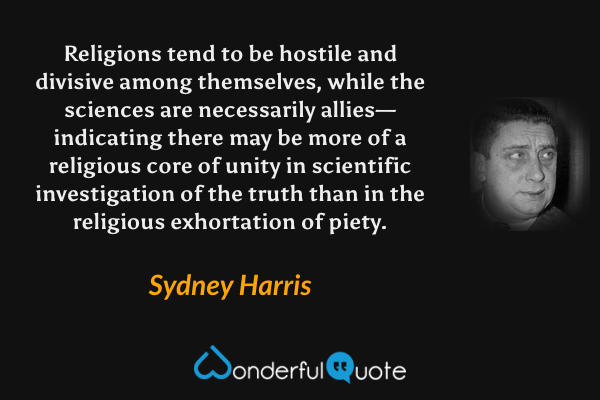
Religions tend to be hostile and divisive among themselves, while the sciences are necessarily allies—indicating there may be more of a religious core of unity in scientific investigation of the truth than in the religious exhortation of piety.
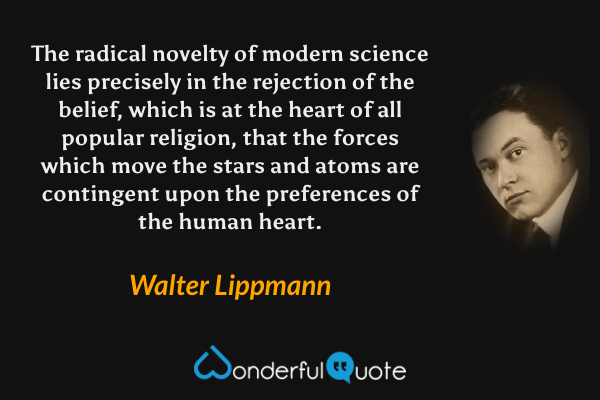
The radical novelty of modern science lies precisely in the rejection of the belief, which is at the heart of all popular religion, that the forces which move the stars and atoms are contingent upon the preferences of the human heart.
What has occurred over the course of the last few centuries is a growing (but by no means universal or certain) recognition that science gets the job done, while religion makes excuses.
Science tries to answer the question: "How?" How do cells act in the body? How do you design an airplane that will fly faster than sound? How is a molecule of insulin constructed? Religion, by contrast, tries to answer the question: "Why?" Why was man created? Why ought I to tell the truth? Why must there be sorrow or pain or death?
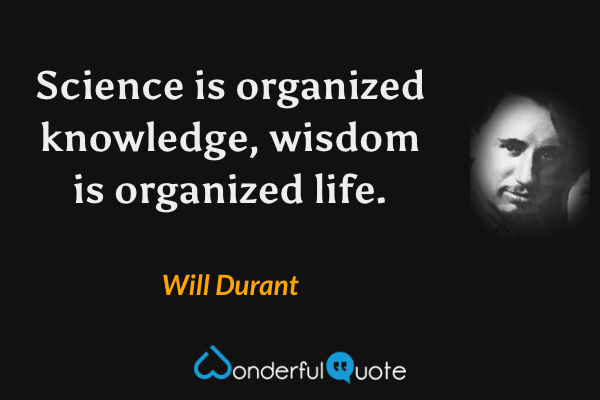
Science is organized knowledge, wisdom is organized life.
You sit quietly gestating them, for nine months or whatever the required time may be, and then one day they are out on their own, not belonging to you any more but to the whole community of scientists.
I do not know what I may appear to the world; but to myself I seem to have been only like a boy playing on the seashore, and diverting myself in now and then finding a smoother pebble or a prettier shell than ordinary, while the great ocean of truth lay all undiscovered before me.

I keep the subject constantly before me, and wait till the first dawnings open slowly by little and little into a full and clear light.
In science one tries to tell people, in such a way as to be understood by everyone, something that no one ever knew before. But in poetry, it's the exact opposite.
There is only one nature - the division into science and engineering is a human imposition, not a natural one. Indeed, the division is a human failure; it reflects our limited capacity to comprehend the whole.
When some high-sounding institute states that a compound is harmless or a process free of risk, it is wise to know whence the institute or the scientists who work there obtain their financial support.
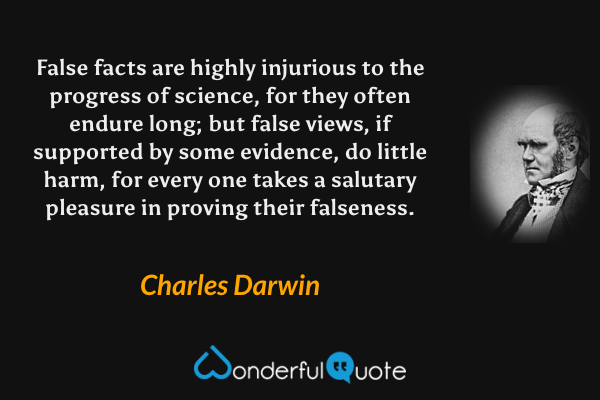
False facts are highly injurious to the progress of science, for they often endure long; but false views, if supported by some evidence, do little harm, for every one takes a salutary pleasure in proving their falseness.
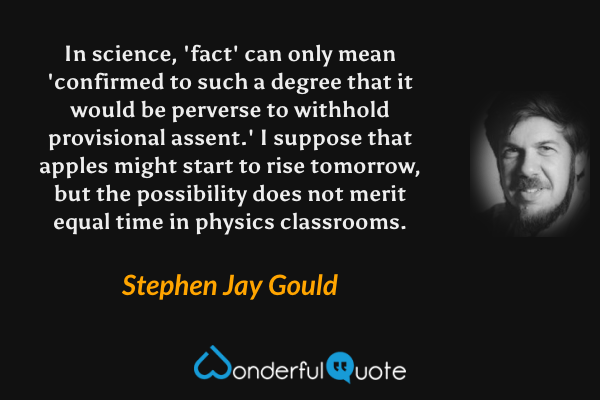
In science, 'fact' can only mean 'confirmed to such a degree that it would be perverse to withhold provisional assent.' I suppose that apples might start to rise tomorrow, but the possibility does not merit equal time in physics classrooms.
The idea that God is an oversized white male with a flowing beard who sits in the sky and tallies the fall of every sparrow is ludicrous. But if by 'God' one means the set of physical laws that govern the universe, then clearly there is such a God. This God is emotionally unsatisfying ... it does not make much sense to pray to the law of gravity.

A fact is a simple statement that everyone believes. It is innocent, unless found guilty. A hypothesis is a novel suggestion that no one wants to believe. It is guilty, until found effective.

A new scientific truth does not triumph by convincing opponents and making them see the light, but rather because its opponents eventually die, and a new generation grows up that is familiar with it.

An experiment is a question which science poses to Nature, and a measurement is the recording of Nature's answer.
But in science the credit goes to the man who convinces the world, not to the man to whom the idea first occurs.

But the great tragedy of Science—the slaying of a beautiful hypothesis by an ugly fact—which is so constantly being enacted under the eyes of philosophers...
Ethics and Science need to shake hands.

Even if the open windows of science at first make us shiver after the cozy indoor warmth of traditional humanizing myths, in the end the fresh air brings vigour, and the great spaces have a splendour of their own.

Facts are not science—as the dictionary is not literature.

For every fact there is an infinity of hypotheses.

How index-learning turns no student pale, Yet holds the eel of science by the tail!

I am compelled to fear that science will be used to promote the power of dominant groups rather than to make men happy.
I have had my results for a long time: but I do not yet know how I am to arrive at them.
I think science has enjoyed an extraordinary success because it has such a limited and narrow realm in which to focus its efforts. Namely, the physical universe.
If we wish to make a new world we have the material ready. The first one, too, was made out of chaos.

In all science, error precedes the truth, and it is better it should go first than last.

In every department of physical science there is only so much science, properly so-called, as there is mathematics.

In science it often happens that scientists say, 'You know that's a really good argument; my position is mistaken,' and then they actually change their minds and you never hear that old view from them again. They really do it. It doesn't happen as often as it should, because scientists are human and change is sometimes painful. But it happens every day. I cannot recall the last time something like that happened in politics or religion.
It is characteristic of science that the full explanations are often seized in their essence by the percipient scientist long in advance of any possible proof.
It is the man of science, eager to have his every opinion regenerated, his every idea rationalized, by drinking at the fountain of fact, and devoting all the energies of his life to the cult of truth, not as he understands it, but as he does not yet understand it, that ought properly to be called a philosopher.

Men are probably nearer the central truth in their superstitions than in their science.

Most institutions demand unqualified faith; but the institution of science makes skepticism a virtue.
My mother made me a scientist without ever intending to. Every other Jewish mother in Brooklyn would ask her child after school, 'So? Did you learn anything today?' But not my mother. 'Izzy,' she would say, 'did you ask a good question today?' That difference—asking good questions—made me become a scientist.
Nature composes some of her loveliest poems for the microscope and the telescope.

No one should approach the temple of science with the soul of a money changer.

Not fact-finding, but attainment to philosophy is the aim of science.

Science is a cemetery of dead ideas.

Science is a first-rate piece of furniture for a man's upper chamber, if he has common sense on the ground floor.

Science is a wonderful thing if one does not have to earn one's living at it.
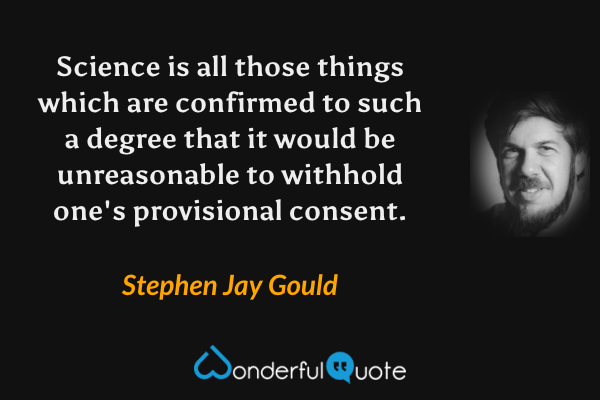
Science is all those things which are confirmed to such a degree that it would be unreasonable to withhold one's provisional consent.

Science is simply common sense at its best.
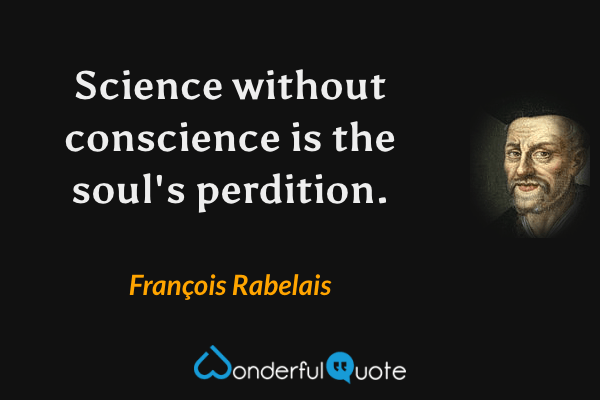
Science without conscience is the soul's perdition.

Science, at bottom, is really anti-intellectual. It always distrusts pure reason, and demands the production of objective fact.
Science, in the very act of solving problems, creates more of them.

Science, like life, feeds on its own decay. New facts burst old rules; then newly divined conceptions bind old and new together into a reconciling law.

Scientific principles and laws do not lie on the surface of nature. They are hidden, and must be wrested from nature by an active and elaborate technique of inquiry.
Scientists should always state the opinions upon which their facts are based.
Scientists, therefore, are responsible for their research, not only intellectually but also morally. This responsibility has become an important issue in many of today's sciences, but especially so in physics, in which the results of quantum mechanics and relativity theory have opened up two very different paths for physicists to pursue. They may lead us—to put it in extreme terms—to the Buddha or to the Bomb, and it is up to each of us to decide which path to take.
That theory is worthless. It isn't even wrong!

The doubter is a true man of science; he doubts only himself and his interpretations, but he believes in science.

The great men of science are supreme artists.
The greatest discoveries of science have always been those that forced us to rethink our beliefs about the universe and our place in it.
The important thing in science is not so much to obtain new facts as to discover new ways of thinking about them.

The improver of natural science absolutely refuses to acknowledge authority, as such. For him, scepticism is the highest of duties: blind faith the one unpardonable sin.

The most exciting phrase to hear in science, the one that heralds the most discoveries, is not 'Eureka!' (I found it!) but 'That's funny ...'
The most remarkable discovery made by scientists is science itself.
The quantum is that embarrassing little piece of thread that always hangs from the sweater of space-time. Pull it and the whole thing unravels.

The scientist, by the very nature of his commitment, creates more and more questions, never fewer. Indeed the measure of our intellectual maturity, one philosopher suggests, is our capacity to feel less and less satisfied with our answers to better problems.

There is no national science just as there is no national multiplication table; what is national is no longer science.
To know the history of science is to recognize the mortality of any claim to universal truth.
Whenever science makes a discovery, the devil grabs it while the angels are debating the best way to use it.

Don't get smart alecksy With the galaxy, Leave the atom alone.
We live in a society exquisitely dependent on science and technology, in which hardly anyone knows anything about science and technology.

We've arranged a civilization in which most crucial elements profoundly depend on science and technology. We have also arranged things so that almost no one understands science and technology. This is a prescription for disaster. We might get away with it for a while, but sooner or later this combustible mixture of ignorance and power is going to blow up in our faces.
The ancients who wished to illustrate illustrious virtue throughout the Kingdom first ordered well their own states. Wishing to order well their states, they first regulated their families. Wishing to regulate their families, they first cultivated their persons. Wishing to cultivate their persons, they first rectified their hearts. Wishing to rectify their hearts, they first sought to be sincere in their thoughts. Wishing to be sincere in their thoughts, they first extended to the utmost their knowledge. Such extension of knowledge lay in the investigation of things.
At the beginning of the 20th Century, there was a sense in many areas of science that the key discoveries had already been made. These impressions were later shaken by discoveries that opened up vast new areas of knowledge. In contrast, we are struck at the start of the 21st Century by the enormity of what we do not know. Prominent amongst these areas of ignorance is complexity. Advances made in the final two decades of the 20th Century only serve to underscore just how much we have yet to learn about complex phenomena.
The incompleteness and the uncertainty of our knowledge, our precariousness, suspended over the abyss of the immensity of what we don't know, does not render life meaningless; it makes it interesting and precious.
It is no more sensible to expect morality from science than it is to expect feathers from a rock. Morality is not what science does.
Why is it so difficult to see that estrangement from nature and from the wholeness of self came about in direct relationship to the rise of mechanistic, Newtonian science and mathematics?
At the heart of most immense, intractable, societal problems lie the hubris of science, the ubiquity of technology, the mythology of economics, and the corruption of commerce.
The larger our area of knowledge grows, so too grows our perimeter of ignorance.
Naive science is about the observables that were observed; real science is about unobservables and unobserved.
Instead of journalism becoming more scientific, it is science that is becoming more and more journalistic.


